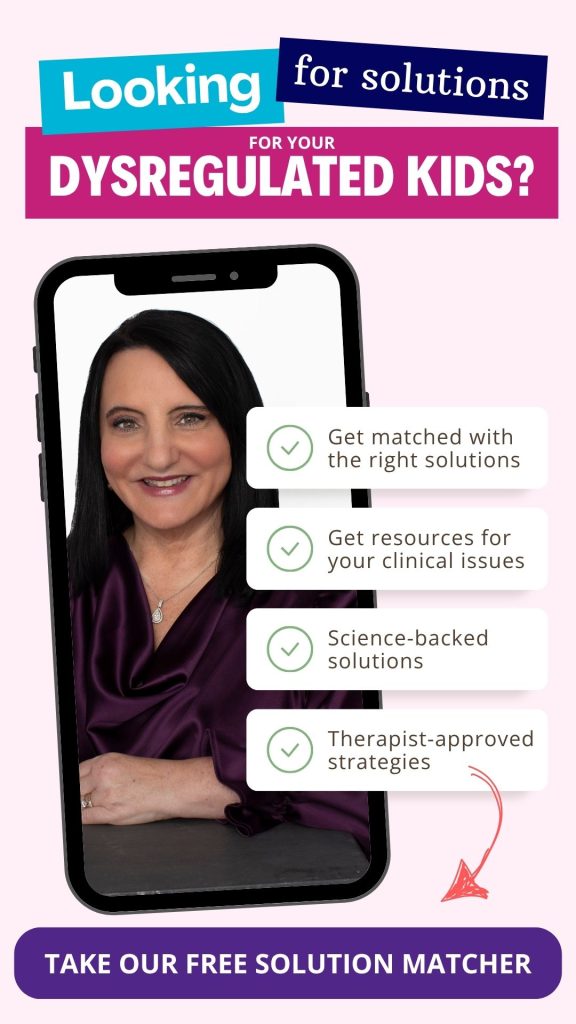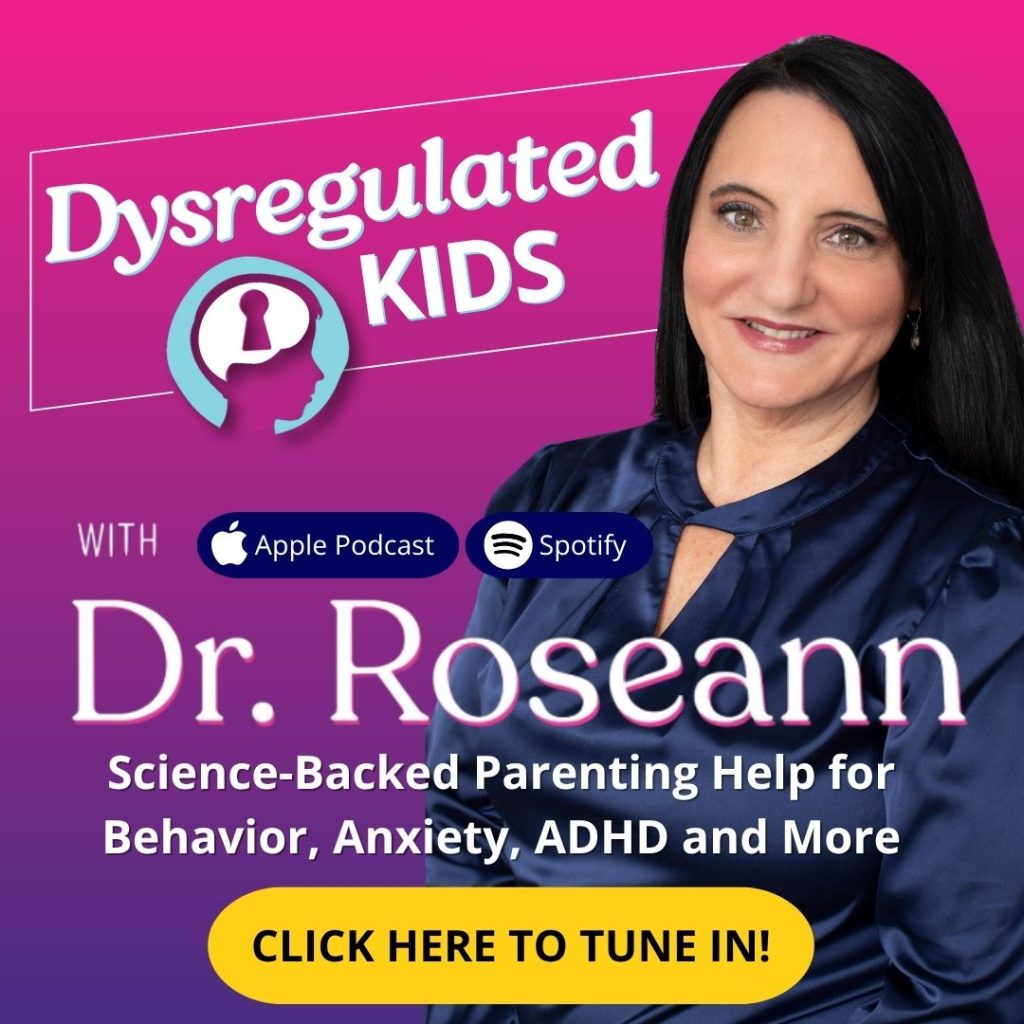Estimated reading time: 7 minutes
OCD in children happens when unreasonable, uncontrollable thoughts and fears develop into obsessions and repetitive behaviors.
Oftentimes, a child or teen resorts to compulsions in the hopes it minimizes their distress and anxiety. Peculiar behaviors like obsessively washing their hands, compulsively asking “are you sure?”, or constantly arranging their crayons are signs they are inherently very afraid of something.
While fears and obsessions sound superficial, especially among kids who didn’t experience any obvious trauma, these may actually be deeply rooted from a dysregulated brain – a condition that’s manageable with affordable, science-backed treatment approaches that help calm the mind.
OCD in children happens when unreasonable, uncontrollable thoughts and fears develop into obsessions and repetitive behaviors.
Oftentimes, a child or teen resorts to compulsions in the hopes it minimizes their distress and anxiety. Peculiar behaviors like obsessively washing their hands, compulsively asking “are you sure?”, or constantly arranging their crayons are signs they are inherently very afraid of something.
While fears and obsessions sound superficial, especially among kids who didn’t experience any obvious trauma, these may actually be deeply rooted from a dysregulated brain – a condition that’s manageable with affordable, science-backed treatment approaches that help calm the mind.
| Key Difference | Typical Behavior | OCD Behavior |
|---|---|---|
| Intensity and Distress | Routines are manageable and skipped without much distress | Significant anxiety if specific rituals aren't performed |
| Interference with Life | Minimal impact on daily functioning | Behaviors can consume hours, disrupting school, family time, and friendships |
| Sense of Control | Child can stop the behavior when needed | Child often feels powerless to stop, even when they know it's irrational |
Example: Sherry, a mom of a 10-year-old named Jane, noticed he spent hours arranging his toys “just right” and became extremely distressed if anyone disturbed them. Unlike typical tidiness, Max’s need for order disrupted his playtime and family interactions.
What Are Symptoms of OCD In a Child?
Recognizing OCD in children can be challenging, as symptoms may vary. Common signs include:
Common Obsessions In Children With OCD:
- Intrusive sounds or words
- Fear of death
- Fear of dirt or germs
- Fear of contamination
- Fear of illness
- Fear of harm coming to oneself or relatives
- Religious obsessions
- Preoccupation with body functions
- Order or actions associated with numbers
- Sexual thoughts
- Aggressive thoughts
- Preoccupation with household functions or items
- Need for symmetry, order, and precision
Common Compulsions In Children With OCD:
- Touching rituals
- Counting rituals
- Tapping rituals
- Washing and cleaning rituals
- Grooming rituals
- Repeating rituals (words, tasks etc.)
- Checking rituals
- Rituals to prevent harming self or others
- Rituals to undo contact with a “contaminated” person or object
- Ordering or arranging objects
- Hoarding and collecting
What Causes OCD in children?
The exact cause of OCD is not fully understood, but these are some of the factors that may contribute:
- Genetics: A family history of OCD can increase risk.
- Brain structure and function: Differences in certain brain areas may be involved.
- Environmental factors: Stressful life events or infections (e.g., streptococcal infections leading to PANDAS) can trigger symptoms .
It’s important to remember that OCD is a neurobiological disorder, not a result of parenting style or personal weakness.
How to Diagnose If My Child Has OCD?
Diagnosis involves a comprehensive evaluation by a mental health professional, including:
- Clinical interviews: Discussing the child’s thoughts, feelings, and behaviors.
- Standardized assessments: Tools like the Children’s Yale-Brown Obsessive-Compulsive Scale (CY-BOCS) help measure symptom severity .
- Observation: Noting behaviors across different settings (home, school).
Early diagnosis is crucial for effective intervention.
For example, some children may display rigid bedtime rituals and routines or make a parent have to repeat a phrase every night to lessen the distress.
I recall one girl who made her parents go through an elaborate morning routine in order for her to eat and get on the bus. Her parents believed that if they didn’t participate, then she wouldn’t eat.
Concerned your child may have OCD?
Take our free quiz to assess symptoms and learn about next steps:
What Are Effective OCD Treatments for Children?
Evidence-based treatments for pediatric OCD include:
- Cognitive Behavioral Therapy (CBT): Specifically, Exposure and Response Prevention (ERP) helps children face fears without engaging in compulsions .
- Medication: Selective Serotonin Reuptake Inhibitors (SSRIs) may be prescribed in moderate to severe cases.
- Family therapy: Educates families on supporting their child without reinforcing OCD behaviors.

How Can Parents Support a Child With OCD at Home?
A parent plays a powerful role in helping a child manage OCD at home — and no, one does not need to be perfect. You just need the right tools and lots of love.
Here’s how to support your child in a way that feels doable and grounded:
- Learn what’s wrong with your child.
- Stick to calm, predictable routines.
- Hold loving boundaries.
- Celebrate the small wins.
When should we seek professional help for our child’s OCD?
Seek help if:
- OCD behaviors cause significant distress or interfere with daily life.
- Symptoms persist for more than a few weeks.
- Your child expresses feelings of hopelessness or depression.
Early intervention can prevent symptoms from worsening and improve outcomes.
A large Danish study of over 850,000 people found that:
- Children with Autism were twice as likely to also be diagnosed with OCD
- Children with OCD were four times more likely to also be diagnosed with Autism
- When a parent had OCD, their child had a higher genetic risk of being diagnosed with Autism
That means there’s both a behavioral and a genetic connection — and it’s something we see clinically all the time.
So what do OCD and Autism have in common?
Both conditions can involve:
- Repetitive behaviors that help manage anxiety
- Rigid thinking or difficulty shifting from one idea or task to another
- Overwhelm from sensory or emotional input
For example:
- A child with Autism may flap their hands (called “stimming”) to self-soothe in a loud or chaotic environment
- A child with OCD may repeat a ritual (like touching something 5 times) to reduce their anxious thoughts
Both behaviors serve a calming function, which is why they can look similar on the surface.
But here’s where they differ:
- Kids with Autism always have challenges with social communication and connecting with others
- Kids with OCD may not have these social difficulties — their struggles are more about managing intrusive thoughts or fears
What Do Other Experts Say?
“Children with OCD often feel isolated. Early diagnosis and treatment are key to helping them regain control.”
— Dr. Susan Dailey, Child Psychiatrist
“Parental involvement in therapy significantly improves outcomes for children with OCD.”
— Dr. Michael Thompson, Clinical Psychologist
Parent Action Steps
FAQs
What age does OCD typically start in children?
OCD can begin as early as age 5, but most cases are identified between ages 8 and 12 .
Can OCD go away on its own?
While symptoms may fluctuate, OCD typically requires treatment to achieve significant improvement.
Is OCD caused by parenting?
No, OCD is a neurobiological disorder. Parenting style does not cause OCD, though supportive parenting can aid in treatment.
How long does treatment take?
Treatment duration varies, but many children show improvement within several months of consistent therapy.
Can my child lead a normal life with OCD?
Yes, with appropriate treatment and support, children with OCD can lead fulfilling lives.
Citations:
- Verywell Health. (2022). Obsessive-Compulsive Disorder (OCD) in Children. Retrieved from https://www.verywellhealth.com/ocd-in-children-5223732
- Child Mind Institute. (2024). What Does OCD Look Like in Kids? Retrieved from https://childmind.org/article/what-does-ocd-look-like-in-kids/
- Texas Children’s Hospital. (2024). Pediatric Obsessive-Compulsive Disorder (OCD). Retrieved from https://www.texaschildrens.org/content/conditions/pediatric-obsessive-compulsive-disorder-ocd
Dr. Roseann Capanna-Hodge is a licensed mental health expert that is frequently cited in the media:
- Single Care Controlling the uncontrollable: Living with OCD during a pandemic
- Holistic Counseling Podcast: Effective Treatments for OCD
- Epidemic Answers: Neurofeedback for ADHD, anxiety, OCD and mood
Disclaimer: This article is not intended to give health advice and it is recommended to consult with a physician before beginning any new wellness regime. *The effectiveness of diagnosis and treatment vary by patient and condition. Dr. Roseann Capanna-Hodge, LLC does not guarantee certain results.
Are you looking for SOLUTIONS for your struggling child or teen?
Dr. Roseann and her team are all about science-backed solutions, so you are in the right place!
Take our free quiz to assess OCD symptoms
©Roseann Capanna-Hodge











